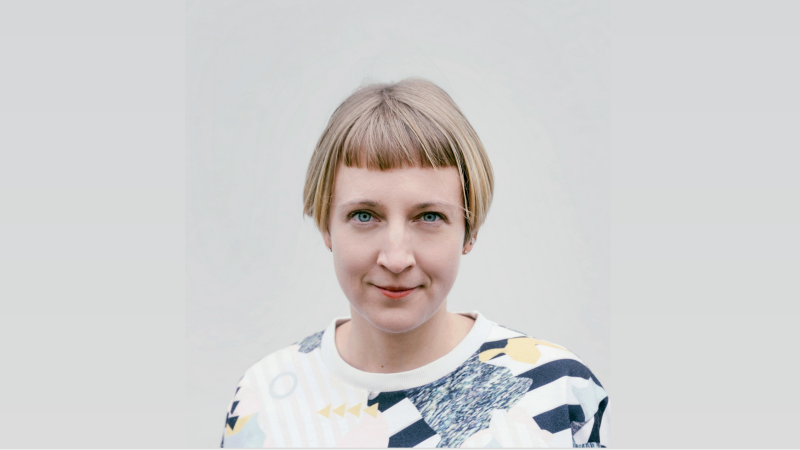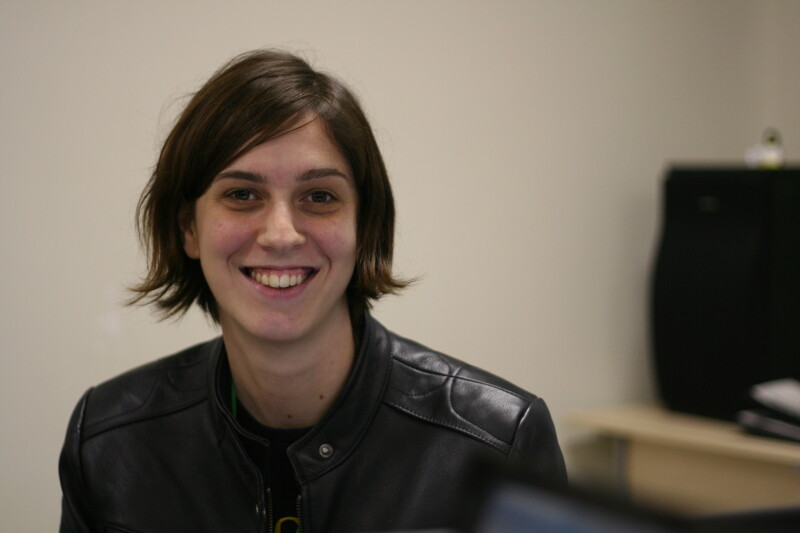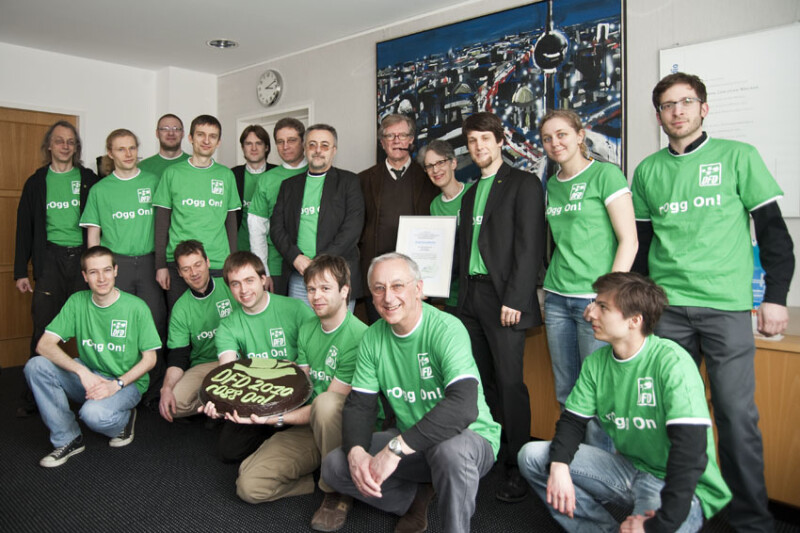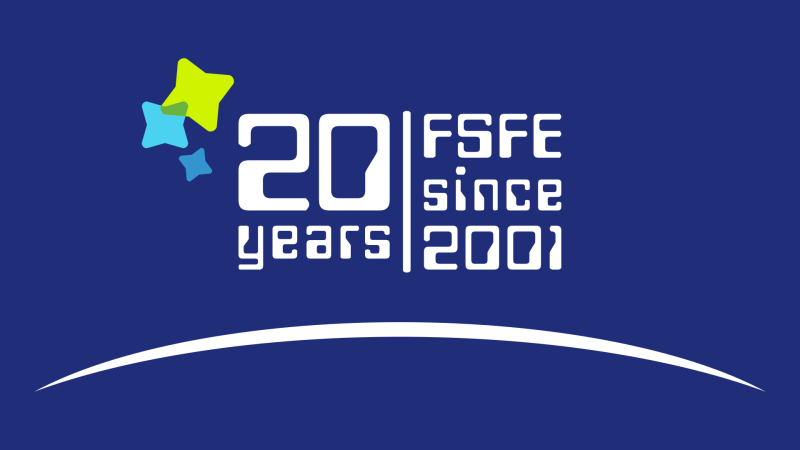NGI0: How the FSFE Helps Free Software Developers Engineer a Better Internet
mardi 4 mai 2021 à 01:00NGI0: How the FSFE Helps Free Software Developers Engineer a Better Internet
With the FSFE in its 3rd and final year of its involvement in the European Commission's NGI0 Initiative, the feedback of our work in this area has been positive. Today, we give you updates of what the team has been working on with this initiative, and share the feedback from various developers on how we've managed to help them.
What will the Internet of the future look like? The European Commission's (EC) Next Generation Internet Initiative (NGI) envisions an Internet that is accessible, diverse, and respects the fundamental value of privacy. Here at the FSFE, we believe that Free Software is key to accomplish this vision, so that all people, regardless of their background, are able to use the Internet as an effective tool to achieve their full potential.
“NGI0 not only made it possible to pursue our goals by supplying funding. I was approached a number of times by professionals whom I learned to respect for their knowledge and concrete support, ranging from security to usability, internationalisation, licensing and copyrighting and putting what we do in a perspective of inclusiveness and diversity. Their help will go a long way to improve our products and I am sure to seek out other partners to the NGI0 project before we’re done.”
Joop Ringelberg, Perspectives-core Project
To that end, since November 2018 the FSFE has been since November 2018 a partner organisation of Next Generation Internet Zero (NGI0), which is a coalition of thirteen non-profit organizations from all over Europe coordinated by the NLnet Foundation. Coming under the overall NGI umbrella, the purpose of NGI0 is to provide financial grants and technical support to researchers and developers who are working on Free Software solutions that contribute to the establishment of the Next Generation Internet.
FSFE Provides Assistance to Free Software Developers Through NGI0
 Free Software is key for the future of the Next Generation Internet.
Free Software is key for the future of the Next Generation Internet.
As part of the technical assistance rendered to NGI0 participating software projects, the FSFE focuses on providing guidance on best practices for communicating the components, licenses, and copyrights associated with software packages. We are happy to share an update on the impact and progress that the FSFE and the project as a whole have had.
“Our Free Software developer needs were understood and met with minimal frictions… With audits, this NGI0 support went further than just allowing us to spend more time working on the project, they taught us how to improve it. The FSFE REUSE team even contributed actual code with a regular merge-request, in a perfect illustration of ‘them’ teaming up with us!”
Simon Descarpentires, Meta-Press.es Project
In order to be effective at internet scale, all 242 NGI0 software projects will be Free Software by end of their involvement in the project. We have made many strides in our efforts to assist these participating software projects with their legal and licensing needs, as well as at convincing them to adopt our REUSE standards as best practices for displaying licensing and copyright information.
To achieve this goal, we have developed a workflow to help projects go through a licensing compliance cycle composed of several phases to identify, process, and resolve any legal query the project could present.
"We are always listening to developers to learn how we can best assist them. While the project certainly had some growing pains in the beginning, feedback from the developers has been incredibly valuable for us to refine our workflow over the course of our involvement in the NGI0 initiative, to make the experience for all participants as fruitful and collaborative as possible.”
Gabriel Ku Wei Bin, FSFE Legal Coordinator
REUSE: Copyright and Licensing Made Easier for Everyone
A significant part of our work in the NGI0 initiative has been to assist participating software projects with adopting our REUSE standards. Code that implements these standards is able to be easily machine read, allowing copyright and licensing information contained therein to be verified automatically without manual intervention. This allows the code to be quickly and safely adopted by individuals, public bodies, and private enterprises of any size.
"The REUSE framework simplifies the declaration and management of different licenses in your own project, and thus clearly enables everybody to reuse Free Software. The addition of REUSE header and software license information to our Neuropil project went smoothly and painlessly. The main work was carried out with a simple merge request over a diverse set of source code files, external libraries and documentation. A big thank you from the team for the FSFE’s contribution!”
Stephan Schwichtenberg, Neuropil Project
Over 2020 and into the first quarter of 2021, we have worked with over 100 NGI0 participating software projects to guide them to implement the REUSE standards on their workflow. This has included working directly with their repositories to better improve how the licensing and copyright information contained in their repositories are displayed, so that any adopters of their work in the future can more easily comply with these license and copyright obligations.
Developing Educational Materials
Together with another NGI0 partner organisation, the Institute for Legal Issues regarding Free and Open Source Software, or ifrOSS, we have included in our website a set of educational FAQs about Free Software legal and licensing issues. These FAQs tackle topics useful to any Free Software developer, such as the basics of copyright, licensing issues with Free Software, and issues with license compatibility. In addition to these quick FAQs, we have also prepared more comprehensive educational PDF documents that explain these topics more in depth.
Providing Guidance on Legal and Licensing Issues
Many participating software projects may also have many legal questions pertaining to the various licenses relevant to their work. While the FSFE assists them with the more basic questions, they can also receive guidance and advice on more complex legal issues from ifrOSS. In the last two years, we have provided guidance with inquiries on a variety of topics, including inquiries related to license implementation and compatibility issues, dependency management, managing external contributions, licensing scanning tools, trademark issues, potential licensing violations and hardware licenses.
"Regarding REUSE, we have learnt a lot. We realise that the idea behind REUSE is simple, clear, and powerful… Nowadays, Free Software projects become more and more complicated, and many components/files of a single project have different license/copyright information. REUSE helps a lot on tracking the status of this information in our project.”
Xianjun Jiao, OpenWifi Project
REUSE and the FSFE's Continuing Commitment to Helping Free Software Developers
Our work with the NGI0 initiative has been a great success for REUSE, as we've managed to help so many developers working on software that will solve a diverse range of problems have a better understanding of Free Software licenses, compliance issues, and how best to prevent these from occurring if they adopt our REUSE standards. Spreading such knowledge and awareness among developers helps to create a more robust and healthy Free Software ecosystem. Indeed, working with REUSE through the NGI0 initiative has been a learning experience for the FSFE ourselves.
"Being involved in NGI0 has been a nurturing experience. On one hand, it has been very interesting to work closely with and learn from projects that are reshaping the future of the internet. On the other, being part of the FSFE team has provided me with the necessary technical and legal skills to feel comfortable to contribute directly to projects' repositories through merge-requests; a task that was completely new for me in the beginning. All the positive feedback from these projects only encourages me to keep up the good work.”
Lina Ceballos, FSFE Legal Trainee
One of the areas where the FSFE is committed to providing guidance for developers is in the legal and licensing sphere. On this front, the FSFE has since 2009 coordinated a network of legal professionals in the field of Free Software, and provided them with a forum for cutting edge legal discussions. It is through the help of this network of experts that we have been able to develop initiatives such as REUSE, which makes it easier for developers to fulfill their Free Software legal and licensing obligations without necessarily having to become experts themselves.
While the NGI0 initiative is expected to come to a close by the end of 2021, the FSFE nevertheless will continue providing guidance to developers. In the upcoming months, we will offer a low-barrier opportunity for Free Software projects to apply for help by our REUSE professionals. As with NGI0, the FSFE will assist developers with making their projects REUSE compliant while clarifying potentially complex copyright and licensing situations. Stay tuned for more!


 Public Money? Public Code!
Public Money? Public Code!
 Fernanda G. Weiden at Latinoware 2008, Fórum do Gnome. Foz do Iguaçu, Brasil. (Picture CC-BY 2.0 Germán Póo-Caamaño)
Fernanda G. Weiden at Latinoware 2008, Fórum do Gnome. Foz do Iguaçu, Brasil. (Picture CC-BY 2.0 Germán Póo-Caamaño)
 A Picture of the FSFE team handing over the DFD Award in 2010 to Radio Deutschlandfunk with the theme "rOGG on"
A Picture of the FSFE team handing over the DFD Award in 2010 to Radio Deutschlandfunk with the theme "rOGG on"
 Document Freedom Day celebration in Singapore 2018. (Picture CC-BY 4.0 Fedora Community Blog)
Document Freedom Day celebration in Singapore 2018. (Picture CC-BY 4.0 Fedora Community Blog)
